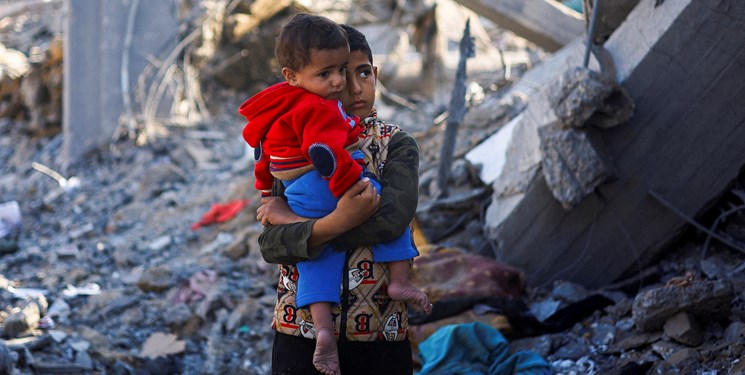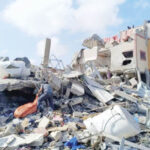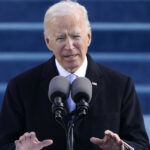Top US diplomat Antony Blinken has told Israel the toll on Gazan civilians caused by its war against Hamas was “far too high”, urging his ally to alleviate their suffering.
More than three months into the deadliest-ever Gaza war, Blinken met Israeli Prime Minister Benjamin Netanyahu in Tel Aviv on his fourth round of Middle East crisis diplomacy since the conflict broke out.
Blinken reaffirmed US “support for Israel’s right to prevent” a repetition of the unprecedented Hamas attacks of October 7 that sparked the war, State Department spokesman Matthew Miller said.
But Blinken also “stressed the importance of avoiding further civilian harm and protecting civilian infrastructure in Gaza”, said Miller of the Hamas-run territory where a humanitarian crisis is deepening and local health officials have reported more than 23,000 deaths.
- REVEALED: Richest royal family is worth 4 times more than Musk, Gates combined
- Police arrest 3 ‘gunrunners’ over attack on Plateau communities
Blinken later told a news conference that the “daily toll on civilians in Gaza, particularly children, is far too high”, and said more food, water and medicine were needed.
Israel has agreed to a UN assessment mission in northern Gaza that would “determine what needs to be done to allow displaced Palestinians to return safely”, he said.
Miller said that for the longer term, Blinken in his discussions with Netanyahu “reiterated the need to ensure lasting, sustainable peace for Israel and the region, including by the realisation of a Palestinian state”.
Israel “must stop taking steps that undercut Palestinians’ ability to govern themselves effectively”, Blinken said during the news conference.
An AFP correspondent reported intense strikes overnight in Khan Yunis and Rafah, the biggest cities in the south of Gaza which are crowded with internally displaced people.
Israel’s army said its forces had killed 40 militants over the past 24 hours in “expanded ground operations including air strikes” in Khan Yunis, and that troops had seized AK-47 assault rifles, rocket launchers and other weapons.
“We lost all of our dreams,” said Hadeel Shehata, a 23-year-old displaced Palestinian living in a tent at a Rafah refugee camp.

 Join Daily Trust WhatsApp Community For Quick Access To News and Happenings Around You.
Join Daily Trust WhatsApp Community For Quick Access To News and Happenings Around You.


